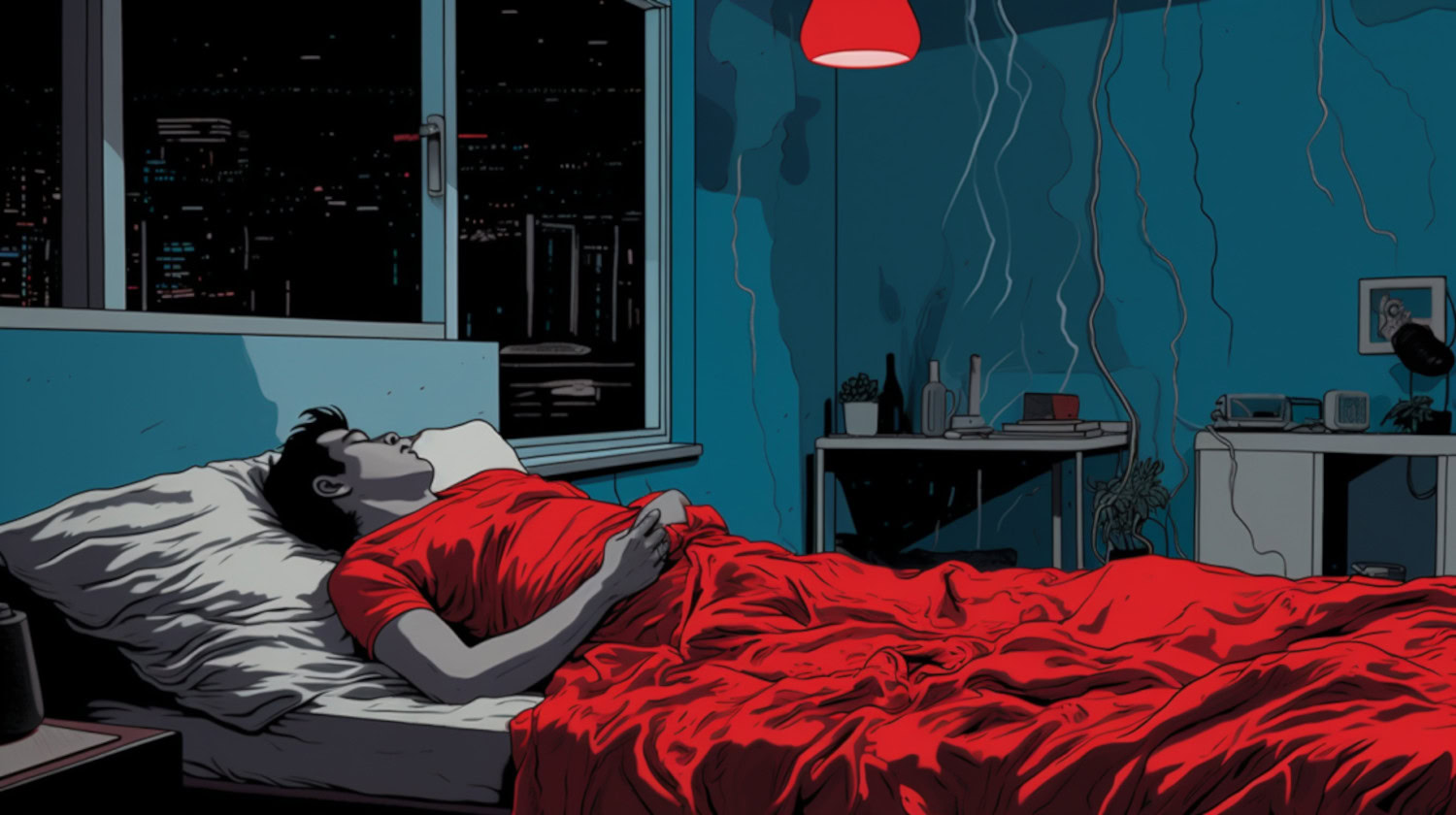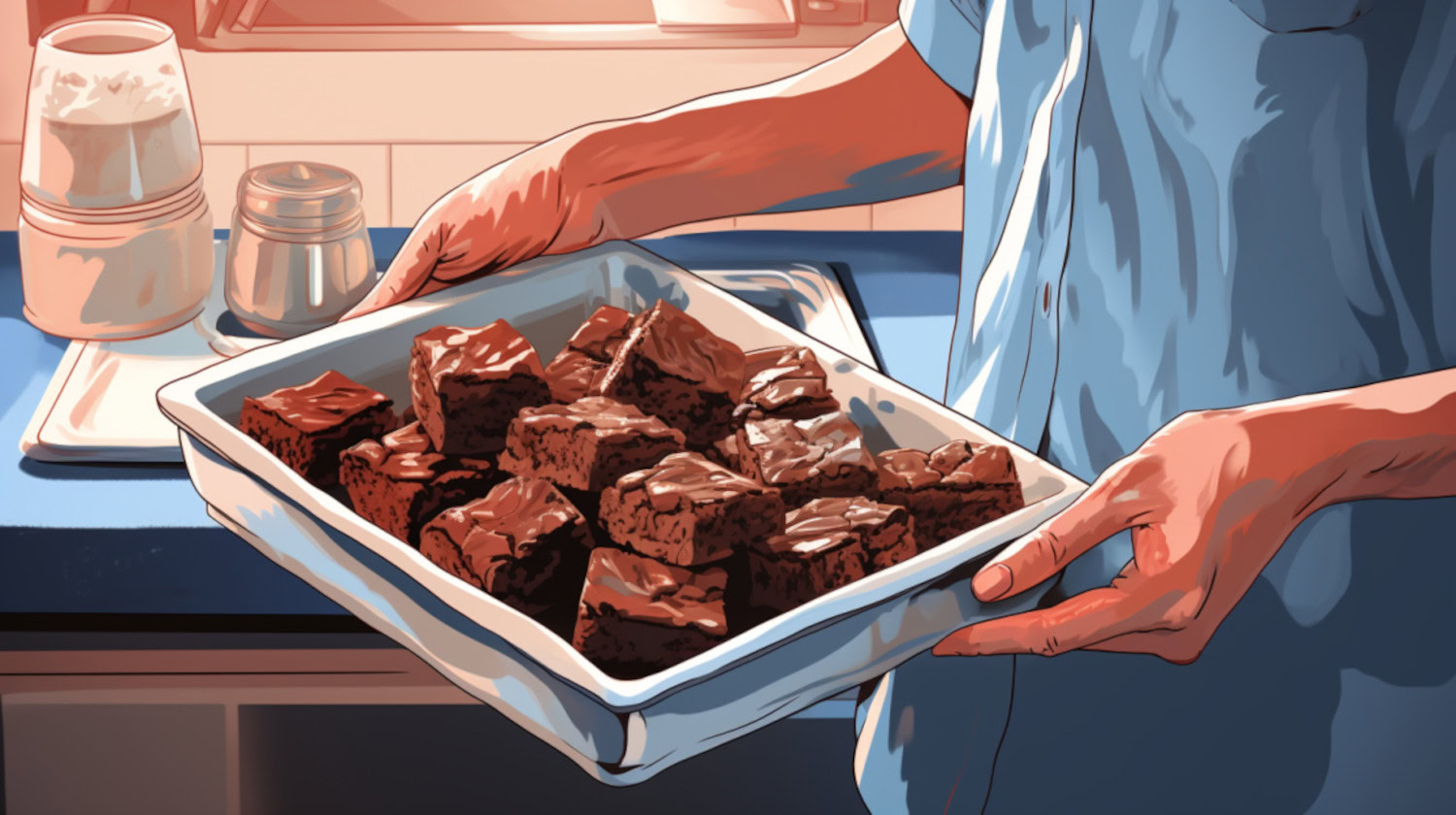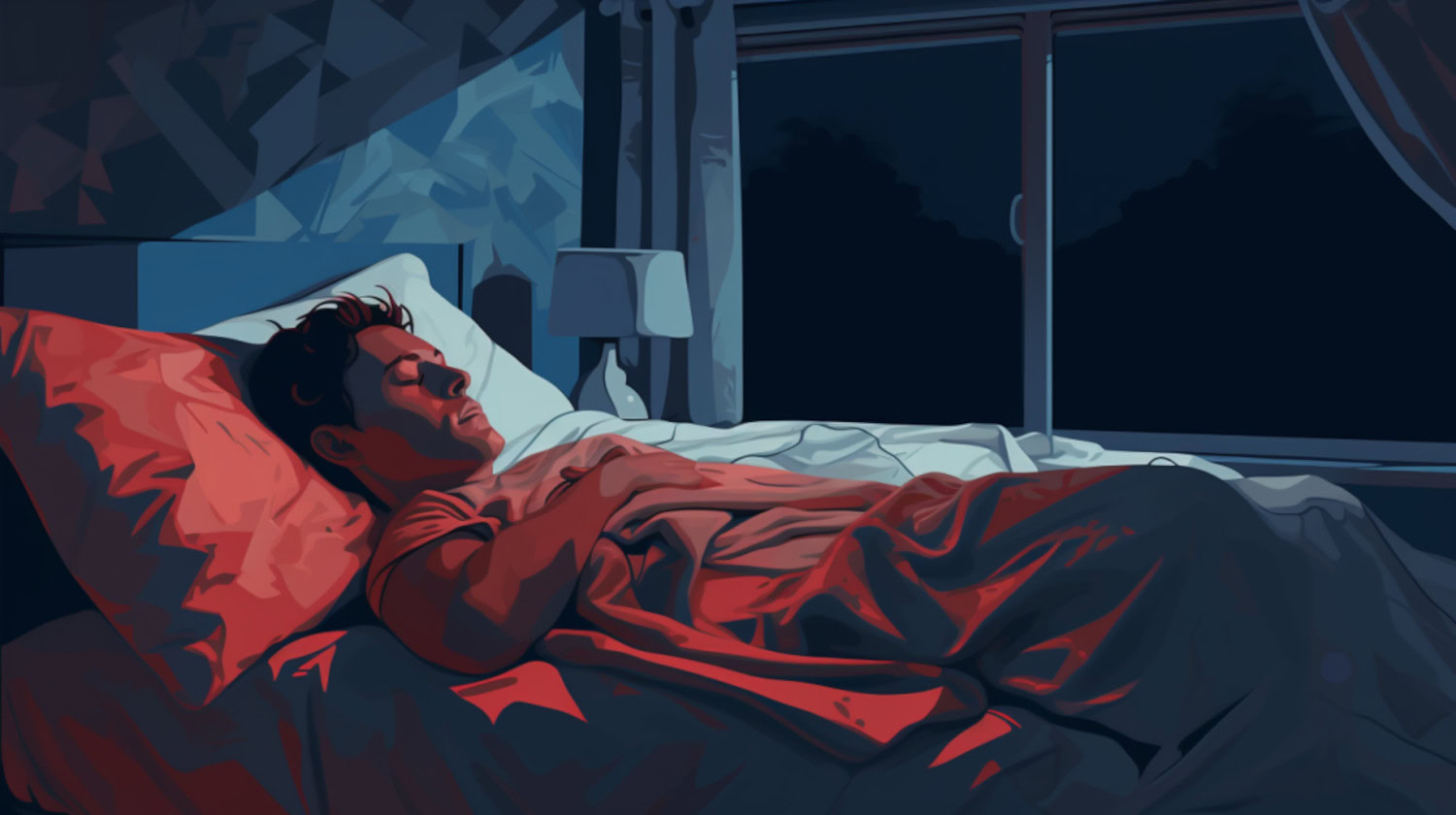Key Takeaways
- Cannabis may help with insomnia, but results can vary significantly from person to person.
- Research suggests that a combination of THC and CBD is best for sleep.
- Terpenes like myrcene and linalool may be beneficial for sleep.
Insomnia is when an individual has trouble falling asleep, staying asleep, or a combination of the two. The US Centers for Disease Control reports that as many as one in two adults experience short-term symptoms, and one in 10 may experience long-lasting effects.
An untold number of people turn to weed to help them fall asleep. Many of the so-called best weed strains for insomnia are praised for easing anxiety, inducing relaxation, and improving sleep quality. While the results are mixed, finding the best weed for insomnia may increase the chances for success.
What is Insomnia?
Insomnia is a common sleep disorder in which a person struggles to fall asleep, stay asleep, or rest well. This sleep condition can lead to various symptoms, including daytime drowsiness, which often diminishes an individual's ability to perform daily activities.
These bouts of severe sleeplessness are more commonly a short-term condition, with stress and environmental changes listed as common causes. About 10% of the population experiences chronic symptoms that last three or more nights a week over three months.
Numerous factors are considered causes of insomnia, including:
The cause of insomnia is often a factor in the treatment choice. Individuals should consult with a medical professional who can suggest therapy, medication, or lifestyle changes.
Cannabis is an option for some people seeking sleep relief. Decades of anecdotal feedback support its effectiveness, and some research, though more is needed for clinical clarity.
Benefits of Using Weed for Insomnia

Clinical research into how cannabis can potentially treat insomnia is ongoing, with results so far mixed.
Studies suggest that cannabis strains high in THC content may improve sleep quality by reducing the time it takes to fall asleep and extending overall sleep duration. A 2023 randomized, double-blind, placebo-controlled study found that a combination of CBD and THC significantly improved sleep in adults with insomnia. 60% of participants no longer classified as having clinical insomnia by the study's conclusion.1
However, research also highlights potential drawbacks, such as disrupted sleep cycles, with long-term and high-dose consumption cited as possible risk factors.2
Anecdotal feedback has been similarly mixed. While many report that cannabis helps with insomnia, others feel it worsens their sleep issues. For instance, a retrospective chart review found that 71% of patients using medical cannabis reported improved sleep, but 21% experienced adverse effects, though these instances were deemed manageable.3,4 This variability underscores the importance of recognizing that cannabis produces a range of results depending on the individual and the specific product used.
Despite the mixed results and lack of supporting results, many in both clinical settings and the general public endorse cannabis for its potential to treat insomnia.5 THC is often cited for its sedative effects, while CBD is praised for alleviating anxiety and pain, which can contribute to better sleep. Additionally, certain terpenes, like myrcene and linalool, are believed to have calming effects that might promote sleep.
Some studies do caution that heavy cannabis use can lead to negative consequences, particularly in altering sleep architecture and reducing REM sleep.
Weed and Insomnia: Are There Any Risks?
There are potential risks when using cannabis to treat severe sleep symptoms. Many turn to high-dose THC products, including broadly defined options like indica gummies. However, some research suggests that these high-dose items may disrupt rest quality by reducing REM-stage sleep, which can lower sleep quality over time.
Although these risks exist, other studies find high-dose options effective for insomnia.
Another risk to consider before adding cannabis to a sleep regimen is the potential for it to interact with medications, like ambien, or supplements, like melatonin. Individuals using additional sleep medications can experience adverse drug interactions when integrating cannabis into their treatment plan.
Cannabis dependence has also been reported in those using it for sleep, with some feeling that they can't go to sleep without their cannabis dosage. Other unwanted side effects include feelings of anxiety, irritability, and excessive sleepiness.
While cannabis is generally low-risk, these concerns should not be overlooked. Anyone hoping to use weed for insomnia or other sleep disorders should consider speaking with a medical professional before changing their treatment regime.
Weed as a Treatment for Insomnia

Select research and decades of anecdotal feedback suggest that cannabis can help with insomnia symptoms. Other studies note that it may not be as effective as claimed, noting its ability to alter sleep patterns and produce other unwanted side effects.
Most research suggests that cannabis be used as a supplemental treatment rather than a primary option to replace existing medications or regimens.
Initial studies have provided insight into how and why cannabis may help with sleep issues. This includes answering why strains labeled as “indica” may often make people sleepy and identifying some of the best cannabinoids, terpenes, and other plant compounds for improved rest. However, given the complexity of the plant and how people experience’s with it can be vastly different, more research is needed to understand the relationship between cannabis and insomnia better.
Tips for Using Weed for Insomnia
With several possible unwanted side effects, individuals should carefully and mindfully integrate cannabis into their treatment plan. This can help set themselves up for the best possible results.
One of the essential building blocks to achieving ideal outcomes is understanding dosage.
Overconsumption of THC and other plant cannabinoids can lead to several adverse outcomes. Most cannabis and medical professionals suggest that newcomers utilize the “start low, go slow” method. This frequently mentioned method recommends consumers start with a low dose and wait a set period before deciding if a second dose is needed to achieve any desired effects.
The dosage and wait period will change depending on the consumption method utilized. For example, edible consumers are recommended to start with a dosage between 2.5 mg and 5 mg and wait 30 to 90 minutes due to longer onset times.6 Smoking and vaping are less precise, which is why it is recommended consumers take one to two short drags and wait 15 to 30 minutes before deciding if another one or two small hits are required.
Consulting with professionals, using a method you’re comfortable with, and taking appropriate doses for your tolerance level and desired effects are a few ways to set yourself up for a positive experience.
Ask a Budtender: Which Weed Products are Best for Insomnia?

The best product for insomnia varies by individual.
Some people prefer a quicker onset of effects from smoking and vaping. In contrast, others are content with edibles and will wait for extended periods to feel often more profound and prolonged effects. Indica gummies containing high-dose THC, minor cannabinoids like CBN, and essential oils or terpenes, including myrcene and linalool, are often recommended.
It is important to remember that several studies have noted that high-dose THC may produce adverse effects as well.
Anyone concerned about over-intoxication or other high-dose THC risks may want to consider starting with low-dose or microdosed products. The "start low, go slow" method is ideal.
Patients seeking guidance on the best cannabis options for their insomnia symptoms should consider first speaking with a medical professional.
References
- Low ZXB, Lee XR, Soga T, Goh BH, Alex D, Kumari Y. Cannabinoids: Emerging sleep modulator. Biomedicine & Pharmacotherapy. 2023;165:115102. doi:https://doi.org/10.1016/j.biopha.2023.115102
↩︎ - Edwards D, Filbey FM. Are Sweet Dreams Made of These? Understanding the Relationship Between Sleep and Cannabis Use. Cannabis Cannabinoid Res. 2021;6(6):462-473. doi:10.1089/can.2020.0174
↩︎ - Vaillancourt R, Gallagher S, Cameron JD, Dhalla R. Cannabis use in patients with insomnia and sleep disorders: Retrospective chart review. Can Pharm J (Ott). 2022;155(3):175-180. doi:10.1177/17151635221089617
↩︎ - Stueber A, Cuttler C. A large-scale survey of cannabis use for sleep: preferred products and perceived effects in comparison to over-the-counter and prescription sleep aids. Exploration of medicine.2023:709-719. doi:https://doi.org/10.37349/emed.2023.00171
↩︎ - Winiger EA, Hitchcock LN, Bryan AD, Cinnamon Bidwell L. Cannabis use and sleep: Expectations, outcomes, and the role of age. Addict Behav. 2021;112:106642. doi:10.1016/j.addbeh.2020.106642
↩︎ - MacCallum CA, Russo EB. Practical considerations in medical cannabis administration and dosing. European Journal of Internal Medicine. 2018;49(49):12-19. doi:https://doi.org/10.1016/j.ejim.2018.01.004
↩︎
The information in this article and any included images or charts are for educational purposes only. This information is neither a substitute for, nor does it replace, professional legal advice or medical advice, diagnosis, or treatment. If you have any concerns or questions about laws, regulations, or your health, you should always consult with an attorney, physician or other licensed professional.




